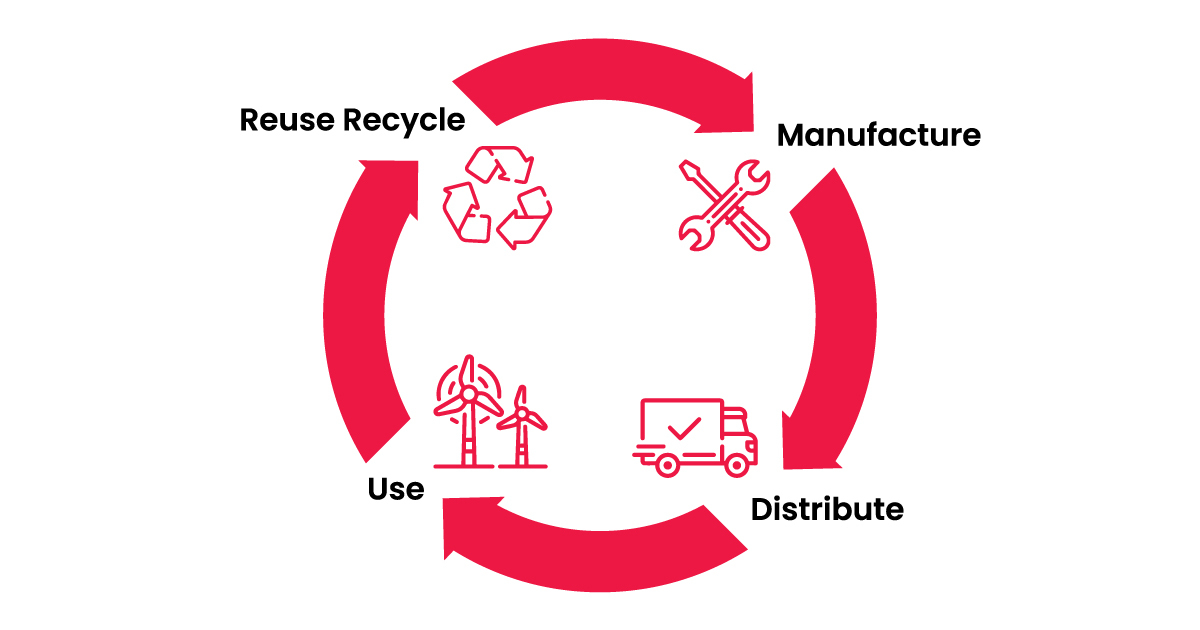The past few years have seen a rise in the complexity of supply chains due to new developments in technology. Innovative approaches are increasingly required to handle processes more effectively while improving the resilience of supply chain operations.
Below are the trends in supply chain management that we may witness in the near future.
Trend #1: Automation and AI
AI and robotic process automation are employed to optimize and simplify supply chain operation by automating laborious and repetitive tasks such as data entry, handling documents, and keeping track of orders.
Systems based on AI may also be used to identify and deal with possible supply chain problems such as interruptions, bottlenecks, and delays brought about by unplanned events.
 While the worldwide robotics market is expected to hit $91.8 billion (up from $55.8 billion in 2021) by 2026, how expensive the integration of AI and automation will turn out to be is the topic of another article.
While the worldwide robotics market is expected to hit $91.8 billion (up from $55.8 billion in 2021) by 2026, how expensive the integration of AI and automation will turn out to be is the topic of another article.
The use of AI in supply chain operation
Trend #2: Supply Chain as a Service (SCaaS)
SCaaS is a highly adaptable approach to logistics in which one or more partners handle production management, manufacturing, storage, inventory tracking, the completion of orders, and shipping. This approach involves contracting out supply chain management to a third party who can then oversee every step from purchasing to delivery.
With a third-party company managing and optimizing the supply chain, businesses can reduce expenses, increase productivity, and improve the performance of their entire supply chain.
SCaaS also allows enterprises to benefit from cutting-edge technological advancements without having to invest in their own infrastructure.
Trend #3: 5G Networks
The use of 5G in logistics could make product transportation much simpler and more precise. The 5G network density is staggeringly different from the network density of 4G which is capable of supporting 10,000 devices per square mile whereas 5G networks can handle 100 times that capacity.
 5G networks can enable the adoption of advanced automation technologies such as robotics and AI which can help to improve efficiency, lower costs, and have a great impact on quality control.
5G networks can enable the adoption of advanced automation technologies such as robotics and AI which can help to improve efficiency, lower costs, and have a great impact on quality control.
Trend #4: The Internet of Things (IoT)
The Internet of Things (IoT) is a network of digitally interconnected real-life objects that are reachable from any location thanks to a wireless network.
IoT solutions are used by raw material suppliers to track their technological procedures, such as gathering real-time data on the status of crops and animal health in the agricultural and farming sectors and analyzing oil composition inside pipelines. The data enables them to increase actual production, improve the quality of the raw materials, reduce the level of power usage, and, as a result, ensure profit.
With a growing number of applications, the significance of IoT is only expected to increase. According to a Dataprot study, there are expected to be over 25.4 billion IoT devices on the market by 2030.
Trend #5: Circular Supply Chains
Previously, linear supply chains produced waste by discarding residual materials after a product had been created.
Different from these linear supply chains which are typically viewed as systems in which raw materials move in a straight line across the supply chain, the circular supply chains encourage a waste-free environment. These involve reusing residual material rather than starting to make an item again with completely new components.
Furthermore, with the appropriate technological solutions, it will be possible to keep track of the status of materials and goods in real time.
 Sustainable practices
Sustainable practices
Numerous industries will continue to focus on sustainability, attempting to concentrate on green and environmentally-friendly practices including the use of renewable energy, energy-saving technology, and waste minimization.
Do you need valuable insights? Are you in search of reliable experts? RightAngle Global seeks out and selects highly qualified individuals with the specific knowledge required for each project. The Experts we vet offer important insights and as a result, our clients are empowered to make well-informed decisions.
Final word
For supply chain management, the coming years will see both new challenges and progress. Companies will start to place more emphasis on resilience in their supply chains to deal with unforeseen disruptions.
Utilizing robotics, AI and automation chain twins will help to keep supply chains scalable and flexible. Furthermore, in addition to the supply chain support provided by SCaaS, the market for cloud-based solutions will continue to expand.
Innovative developments in technology and new trends are constantly emerging and for companies to remain competitive and boost the efficacy, efficiency, and resilience of supply chain operations, they must keep up with the most recent trends
Suggested reading:
Management consulting industry is about to change forever. Find out why.
Top 5 mining and metals industry trends for 2023 and beyond
Expert networks: a game-changer in healthcare research
Share to



